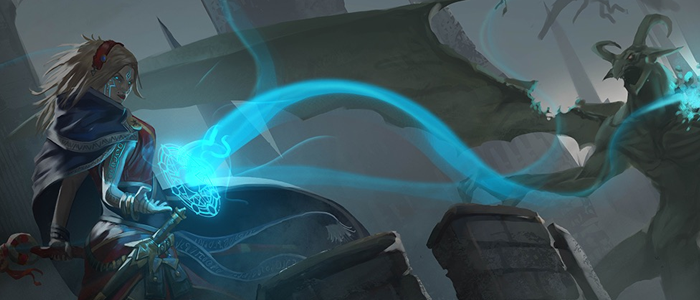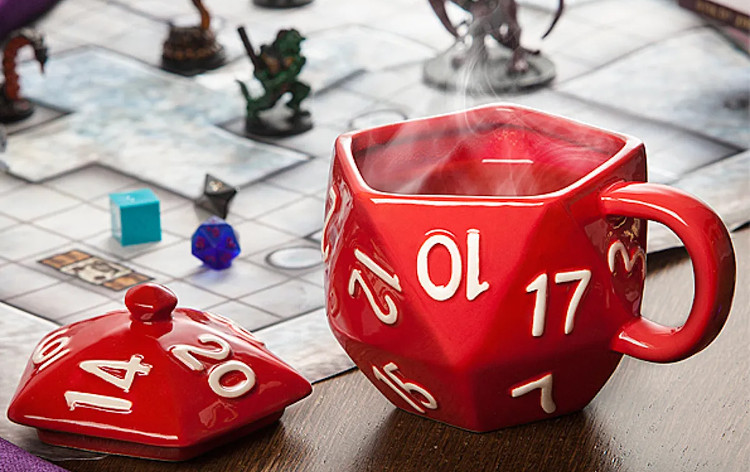The phrase “at the GM’s discretion” is no stranger to RPG gamers. Not every circustance can have a rule, and not every rule covers every eventuality. The Pathfinder Second Edition Core Rulebook leans into this idea, as loosening the power the rules give players over us GMs was one of the new edition’s design goals. Empowered by a rulebook allowing us to GM at our discretion, all that’s left for us to do is rejoice, right?
Well…
In Behind The Screens, Ryan Costello offers advice, ideas, and insight for the Pathfinder GM. He deconstructs popular GMing advice to account for different styles and motivations of Game Masters and players. Afterall, everyone games in different ways for different reasons.
Appeals to Discretion
We’d all like to think that GM discretion means when we get to make a ruling, that ruling is accepted and everyone moves on. We’d also like to think that “we game Monday” means butts at the table and not buts in our Inbox. Oh our naïve optimism.
Many players will see a rule calling itself out as at the GM’s discretion is an opportunity to plead their case. Pathfinder 1e may have been known as a rules lawyer’s courthouse, but there is more than one law school gamers attend. For example, I had a player from my high school D&D 2e game was a logic lawyer (or rather a “logic” lawyer, see below for the distinction), arguing, for example, that he should be able to parry melee attacks that the rules say hit him because *mimes parrying*.
For all the rules lawyering dissuaded by Pathfinder 2e’s emphasis on GM discretion , it opens up different angles from which players leverage the GM to show discretion in their favour.
Types of Gamer Lawyers
Below are some ways in which players can argue with us GMs. Note that fun is not on the list below. I believe that fun is the goal of all of the below tactics, depending on your and your group’s brand of fun.
Logic
Regardless of the rules, a Logic lawyer wants the game to make sense. An appeal to logic includes the application of real world facts and academic knowledge.
The trick about fantasy as a genre is its relationship with reality. Yes, there are dragons and magic, but our ability to accept that does not dictate whether we think magic fire should share the reactive properties of real fire. Searching for a quote I saw a few months ago to the effect of “whoever gave padded armor the comfort trait in Pathfinder 2e owes everyone who ever wore padded armor an apology,” I came across a Reddit thread called [2e] An attempt at more historically accurate armor. It’s a good example of someone who felt the level of realism of an area of a fantasy game in which they are familiar.
“Logic”
As opposed to Logic, an appeal to “Logic” includes the application of assumed facts without actual academic knowledge.
The best example (albeit one I’ve gone into before) is the “logic” than an animal companion would attack enemies even if not directed to. This ignores the fact that the first step of training an animal is breaking it. The reason a Hollywood animal can perform in action scenes despite the danger their senses indicate is all around them is because they have learned to trust their handler more than their own senses.
What’s important to remember is that just because someone’s presented their argument as logical when it’s actually based on how they feel, that doesn’t dismiss their objection. We may call argumentative players lawyers but misrepresenting an argument does not warrant throwing out their case. The way I approach a “logic” lawyer is to ask if disproving the facts of their statement will change how they feel. If so, invite them to prove their point (not necessarily during the session). If not, try to figure out what it is about their argument that would improve their experience. Perhaps it will make the game more cinematic, or immersive for some other reason. Regardless of whether it’s a logical argument or a “logical” argument, the player feels justified to object and it’s best to address whatever is causing the objection.
Dramatic
Above all else, dramatic lawyers value the emotional roller coaster that is the roleplaying game experience. Sometimes that comes at the expense of the game part of the roleplaying game experience.
Where logic lawyers will argue for house rules to improve the verisimilitude of the game, dramatic lawyers are the most likely to argue for spontaneous exceptions to the rules. They see the rules as facilitators for engaging storytelling. When they are engaged, they want the facilitator to step aside and let the scene, the storytelling, the drama of the moment take precedence.
Think of it like the Ant-Man movies. The best scenes involve fun with size changing, and almost all of them ignore the simple rules of shape changing the movie establishes. Basically, Pym particles condense and expand atoms. That’s why Ant-Man’s punches hit with the force of a 200 lbs man. That’s also why this tiny 200 lbs man shouldn’t be able to ride an ant. To some, this inconsistency ruins the movie. To others, it makes the movie. To most, Luis makes the movie.
Convenience
Some players just want to keep the momentum going.
We as GMs are not immune to analysis paralysis. Making rulings at our discretion can be as imprisoning to some as it is freeing to others. If a player is volunteering for a decision to be made against their favour, or the pressure they are applying is not for a decision one way or another but just some decision, you may be taking too long to make a ruling.
We don’t have to assume our players are looking to take advantage of us. If a rule says it is at the GM’s discretion, we can ask our players “what do you think is fair?”
Conclusion
Players arguing with the GM often are usually portrayed as the villain of the scenario or the bane of the GM experience. In defense of argumentative players, there’s a lot of time between a player’s turns, and that gives them time to plan several steps of a plan ahead, while we as GMs need to focus on what’s happening in every moment. If an early step in that player’s plan includes an interpretation or assumption that differs from ours, that’s a lot of brain power we are asking for them to throw out. And if they are the type of person who does better with a thought-out plan than on their feet, asking them to change their plan in real time can be anxiety inducing.
Just because a rule says it is at the GM’s discretion, that does not mean players won’t argue their side. And a player arguing their side isn’t automatically trying to take advantage of us or the situation. If you find that too often the rules left to your discretion lead to arguments, try to establish a hierarchy of how you will adjudicate them (for example: dramatic > convenience > logic > “logic” or logic > “logic” > convenience > dramatic). If you are in the habit of saying “I’m making this ruling because it makes the most sense” or “because it’s the easiest solution” you can expect the tone of your game to start reflecting that.










